Who are the senior Iranian military officials killed in Israeli attacks? The military leadership is in turmoil.

This morning's Israeli attack on Iranian soil targeted the highest echelon of Iranian defense and killed the Chief of Staff of the Armed Forces, Mohamed Hosein Baqeri, and the Commander-in-Chief of the Revolutionary Guard, Hossein Salami.
The deaths of other senior military officials, several scientists, and more than 70 civilians were also confirmed. But who were these people?

Israel attacks Iran, including nuclear facilities Photo:
After Supreme Leader Ali Khamenei, Baqeri was Iran's most powerful military officer. A graduate in engineering, with a doctorate in political geography and an expert in military intelligence, he had been Chief of Staff of the Iranian Armed Forces since June 28, 2016, when he replaced Hassan Firouzabadi.
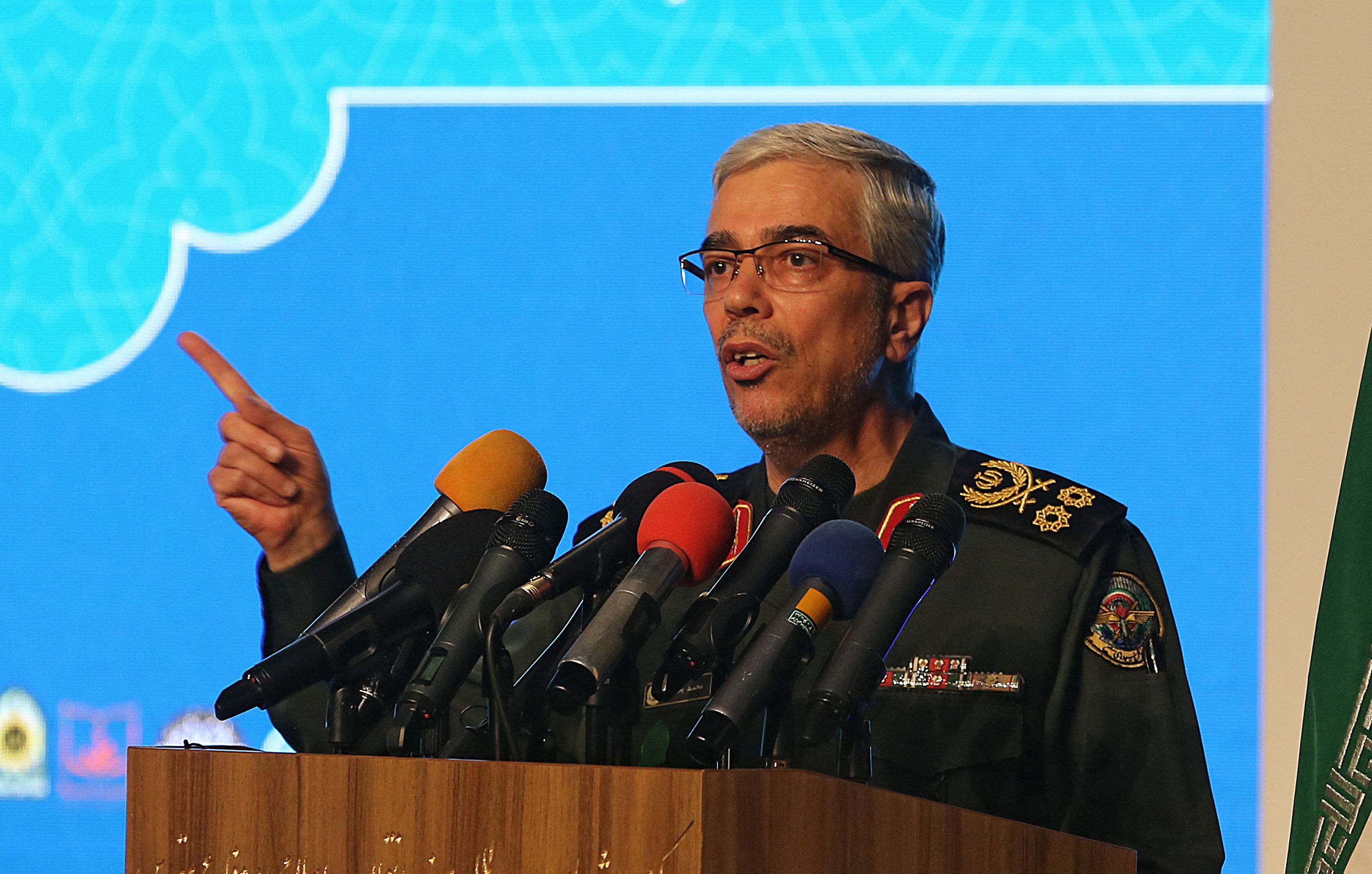
Iranian Major General Mohammad Bagheri was killed during Israel's attack on Iran. Photo: AFP
Born Mohammad-Hossein Afshordi in Tehran in 1960, he was a seasoned military veteran who fought in the Iran-Iraq War (1980-1988) as part of the Revolutionary Guard and also served as Deputy Chief of Staff for Intelligence and Operations from 2002 to 2014.
Baqeri was placed on the U.S. Treasury Department's sanctions list in November 2019 and also faced sanctions from Canada and the European Union (EU), which accused him of transferring drones to Russia for use in Ukraine.
His post will be taken after his death by Major General Abdorrahim Mousavi, who is also the Army Commander.
Hossein Salami, a combative soldier Salami was appointed head of the Revolutionary Guard, the force charged with protecting Iran's Islamic political system, in 2019, replacing Mohammad Ali Jafari, shortly after US President Donald Trump announced his withdrawal from the international nuclear deal with Iran, reinstated sanctions against Iran, and designated the Revolutionary Guard as a terrorist organization.
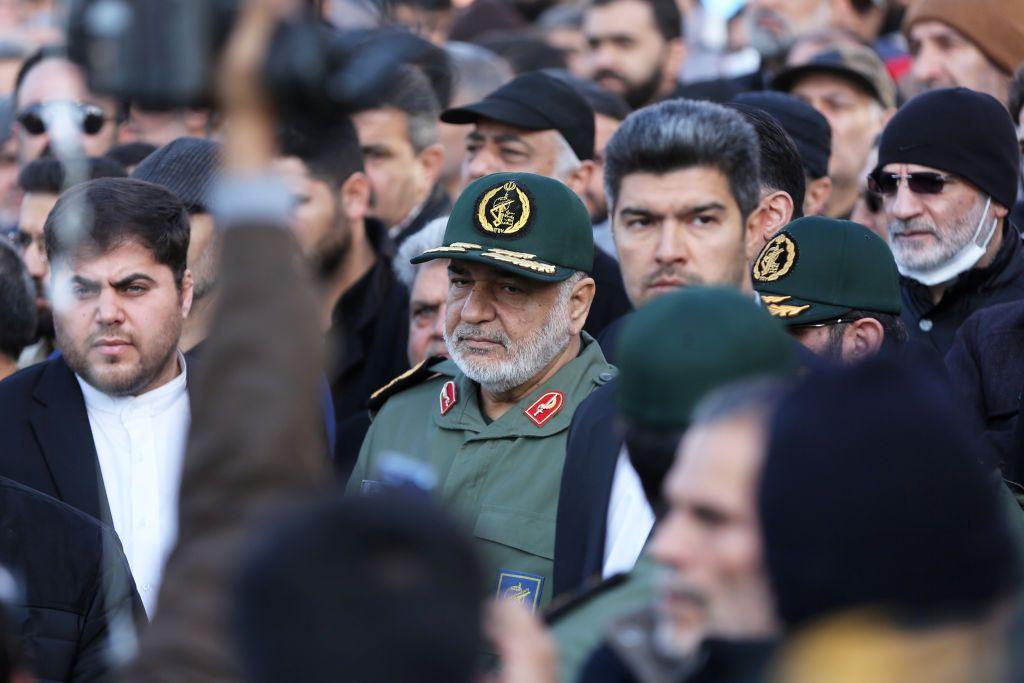
General Hossein Salami has commanded the Quds Force since 2020. Photo: Getty Images
Born in 1960 in the city of Golpayegan (central Iran) , he was a mechanical engineering student in Tehran when the war with Iraq broke out (1980-1988) and the same year he joined the Revolutionary Guard, where he later rose to head of its air force and was deputy commander.
After the United States assassinated Qassem Soleimani, head of the Revolutionary Guard's Quds Force, on January 3, 2020, in Baghdad, Salami himself threatened retaliation against Americans and Israelis: "Any action the enemy takes against us will be responded to with a reciprocal, decisive and firm blow," he said.
Considered a combative man with an aggressive rhetoric against Israel, the US, and Saudi Arabia, in his speeches he promised revenge and spoke of a "global struggle" against the enemies of Islam. He is believed to have ordered the April 2024 operation in which Iran launched some 300 missiles and drones toward Israel.
For this reason, official channels consider him "a visionary," and the Islamic Guard itself said after his death that "he was one of the most prominent commanders of the Islamic Revolution."
The post of Commander-in-Chief of the Revolutionary Guard will now be held by Major General Mohammad Pakpur.
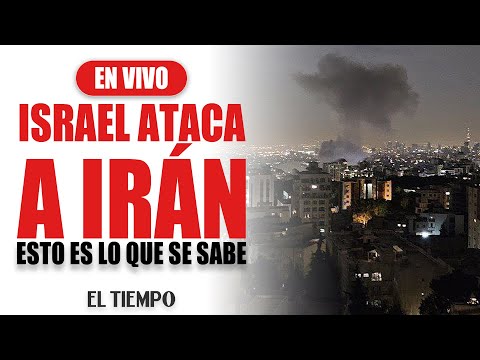
What is known about Israel's attack on Iran? What could happen? Photo:
Along with Baqeri and Salami, the deaths of the head of the elite military corps' Air Force, General Amir Ali Hajizadeh, and General Gholam Ali Rashid, head of the important Khatam ol-Anbiya air base, have also been announced.
According to the Israeli military, the drone force commander, Taher-pour, and the commander of the Air Command, Davoud Shaykhian, also died in the attacks .
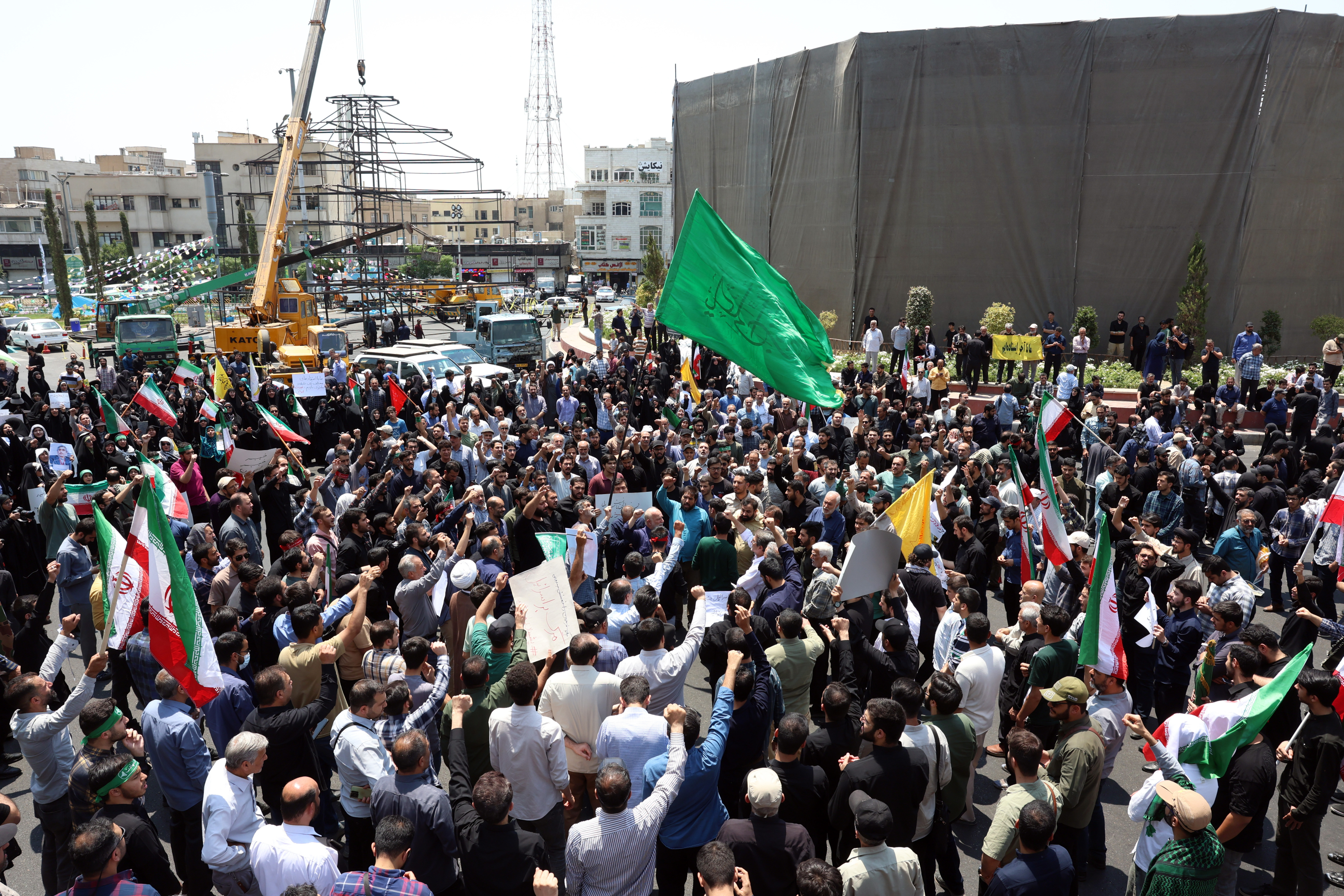
Protests in Iran against the Israeli attack Photo: EFE
Hajizadeh was in charge of Islam's missile and drone program since October 2009 , and thus played a prominent role in the recent missile launches at Israel last year.
His record, in addition to US and Canadian sanctions, also includes the downing "due to human error" of Ukrainian Airlines Flight 752 on January 8, 2020, which departed from Tehran and killed 176 people. Hajizadeh himself told reporters that the aircraft was shot down by a short-range missile that exploded near the plane, after Iran mistook the Boeing for a "cruise missile."
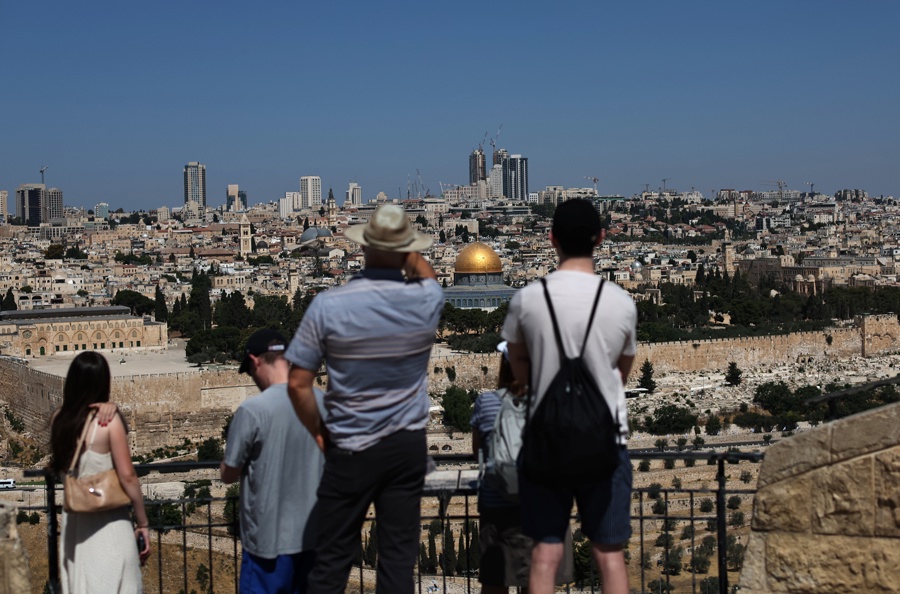
Israel attacks Iran Photo: EFE
For his part, Rashid, born in 1953 in Dezful (western Iran), was the commander of the Khatam al-Anbia Central Headquarters (KCHG) since June 2016, and was responsible for coordinating Iran's conventional army and the Islamic Revolutionary Guard Corps, as well as overseeing offensive and defensive operations.
He also participated in the transfer of unmanned aerial vehicles to Russia to support Putin's aggression against Ukraine, which is why Gholam Ali Rashid is included on the European Union's sanctions list.
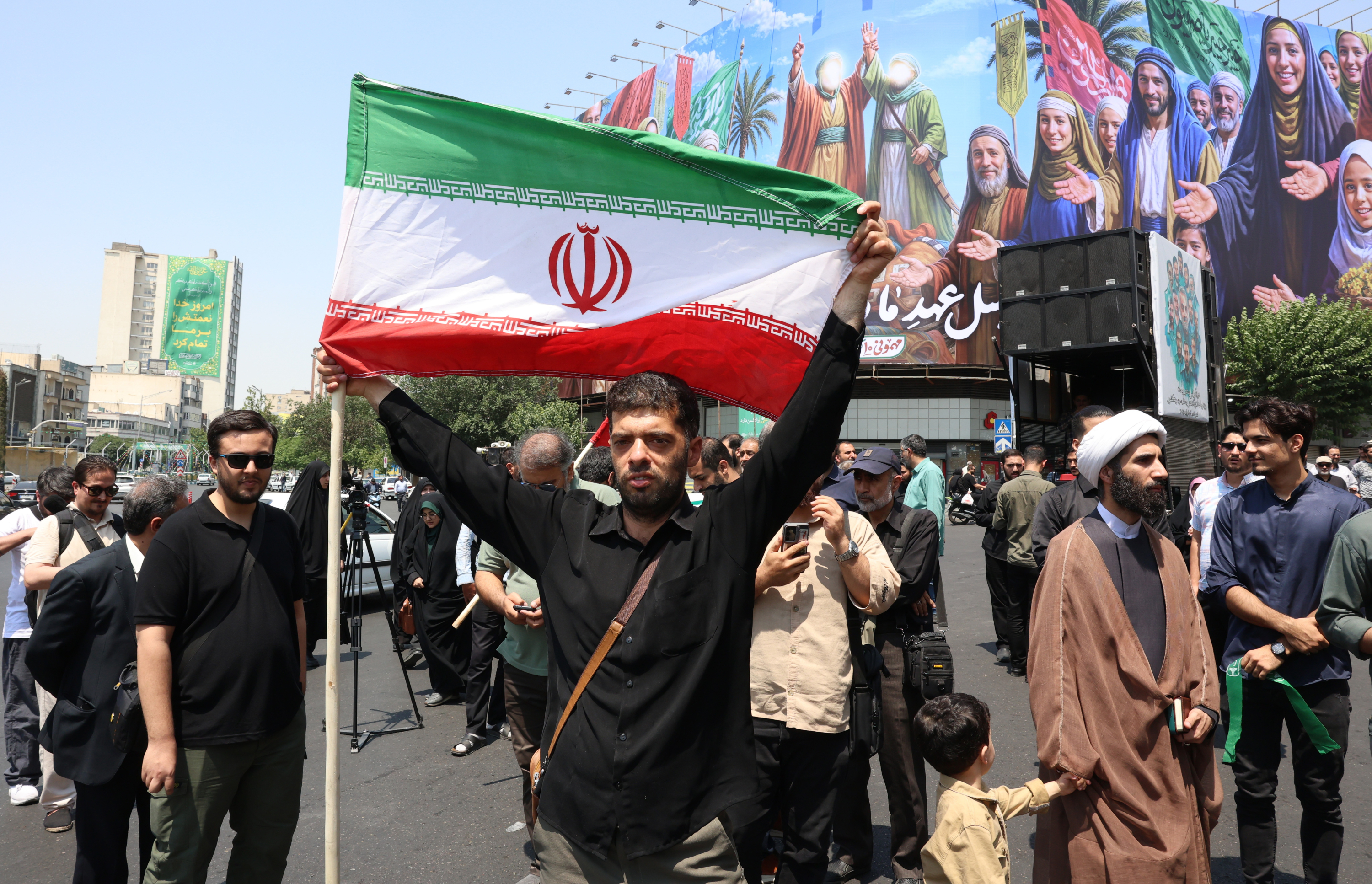
Protests in Iran against the Israeli attack Photo: EFE
At least six Iranian nuclear scientists were also killed in the attacks, which targeted Iran's main uranium enrichment plant, Natanz, which was hit in the bombing, according to the Revolutionary Guard-linked Tasnim news agency.
These are Mohammad Mehdi Tehranchi, Fereydoun Abbasi, Abdulhamid Minouchehr, Ahmadreza Zolfaghari, Seyyed Amirhossein Faqhi and Motlabizadeh, all of them linked to the powerful Iranian nuclear program.
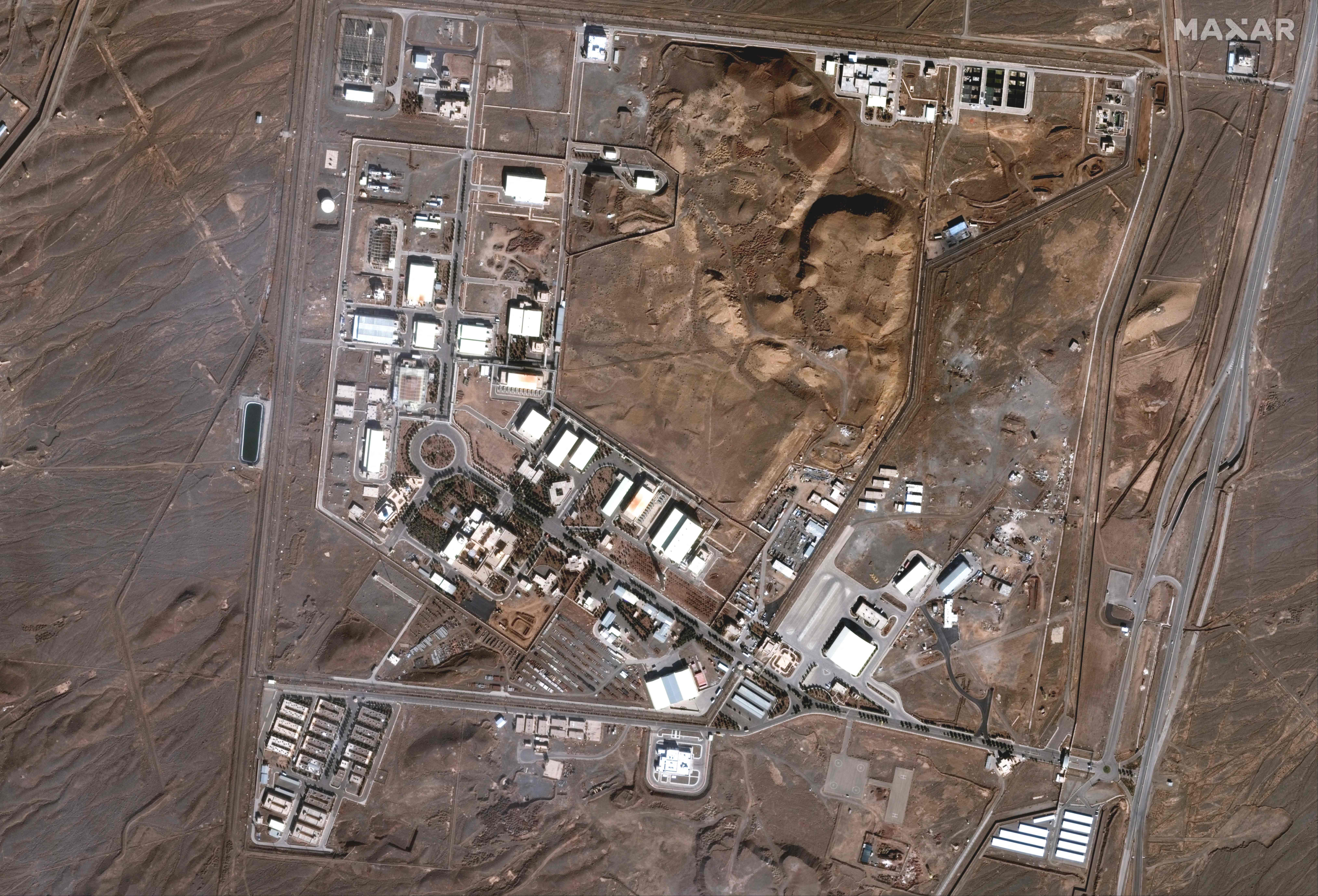
Natanz nuclear facility in southern Tehran, Iran. Photo: AFP
Tehranchi (Tehran, 1965-2025) was one of the country's most renowned nuclear scientists, a distinguished figure in the academic world, and played, according to the official press, a fundamental role in Iran's scientific future.
Abbasi (Ababán, 1958-2025) was a nuclear scientist who served as director of the Atomic Energy Organization of Iran between 2011 and 2013, but he was also a parliamentarian and part of the Revolutionary Guard.
Along with these scientists, Iranian media reported that some 70 people were killed and more than 300 injured in Iran in the Israeli attacks, according to data that has not been confirmed by authorities.
eltiempo





